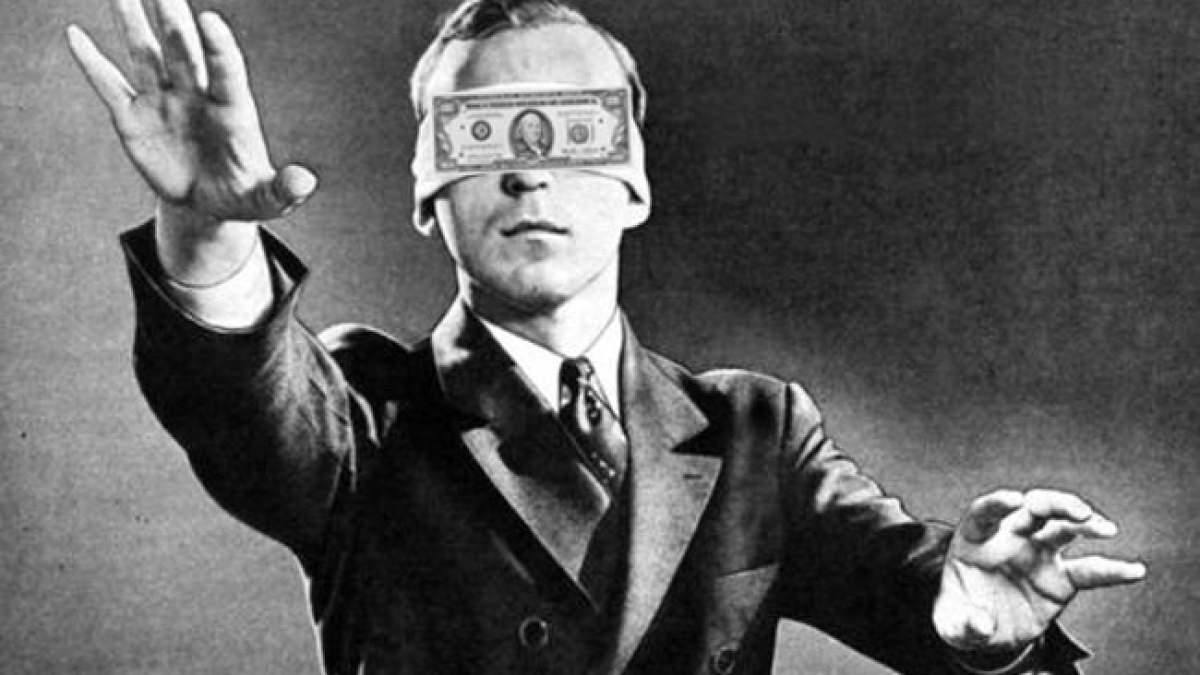Money and Morality

Step on the gas, step on a man . . .
Writing recently in TheNation, Chris Hayes drew an intensely unnerving parallel between the use of fossil fuels as an energy source and the use of slave labor - not a moral parallel, but a financial one, though money and morality have a perversely symbiotic relationship. Where there's money to be made - especially enormous quantities of it - moral justifications come awfully cheap.
Hayes points out that the movement to end dependence on fossil fuels, drastically reduce carbon emissions and reverse global warming faces a financial hurdle of staggering proportions: ". . . the total amount of known, proven extractable fossil fuel in the ground at this very moment is almost five times the amount we can safely burn," he writes. Possession of this unexcavated carbon is claimed by global corporations: It's theirs to pull out of the ground, and it's worth . . . uh, somewhere between $10 and $20 trillion.
But there is, it turns out, a precedent for divesting rich and powerful people of a comparable amount of wealth, Hayes says. It was called the abolition movement.
By the time of the Civil War, some 4 million human beings were in bondage in the South - "owned," for God's sake: legally possessed and controlled to the last heartbeat. The precedent of slavery goes back to the beginning of human history, of course. Before the industrial era and the releasing of the energy of fossil fuels, the relatively privileged gained control over their environment by putting animals and other human beings to work for them. The moral and legal justifications for doing so accompanied the practice.
In 1860, the South's 4 million slaves, Hayes writes, "represented about 16 percent of the total household assets - that is, all the wealth - in the entire country." In today's economic terms, that would be in the nature of $10 trillion, according to Hayes. The abolition movement sought no less than to wrest this legally established "wealth" away from the nation's 400,000 slave owners.
Speaking of the eerie parallel between these two vastly different moral dilemmas - slavery and ecological devastation through unchecked extraction and consumption of fossil fuels - Andrew Nikiforuk, whose book TheEnergy of Slaves was published in 2012, said in an interview with the online Canadian news magazine The Tyee:
"During the nineteenth century, slave societies were known for their moral carelessness, brutality and indolence. In a strange sort of way, cheap oil has given us the same sort of frailties and vulnerabilities once associated with slave owners. Nineteenth-century slave holders didn't have much insight about the moral consequences of their dependency on slave labor. Nor do we."
It took a monstrous war to end slavery in the United States - and of course, the Civil War didn't eliminate the racism that accompanied slavery. A lesser morality set in soon enough: The Jim Crow South emerged. A devastated, defeated society rebuilt itself not with equality as its cornerstone but, rather, the same compromised morality-of-convenience that permitted one social subgroup to dominate, if not outright "own," another. And much of the wealth that abolition wrested from the slave owners returned to them.
This is humanity's moral maelstrom: Doing what's right, in a simple, pragmatic sense - securing survival and connection with one another - almost always, at least in Western civilization, gives way to doing what's righteous. Righteousness is an instrument of power, an enabler of domination. Righteousness can be gamed.
Our legal system is permeated with righteousness. Consider:
"Somebody figured out, once again, how to build a machine that can quantify the life of an African-American man and make money off him," writes Edwin Sanders at the ACLU Blog of Rights. "They figured out how to use the value of his body to fuel their machine. They learned how to drive its engine, and how to turn a profit. They call it prison privatization. I call it mining black gold, and I have watched black gold be mined from the streets of my community every day."
What the U.S. prison system - private and otherwise - lacks in integrity, you can bet it makes up for in righteousness. But there's money to be made and the prison population of Tennessee, where Sanders lives, is growing, he writes, at more than twice the rate of the state's general population. "It has become something that eats at the heart of the humanity in all of us."
I make note of all this with awe, but not with answers. The money system we live under, as Charles Eisenstein points out in his book Sacred Economics, is backed by growth: the necessity for more money. It's called profit. We understand wealth, then, to be not a state of spiritual balance with ourselves and our environment, but as something that endlessly and forcefully accumulates, to no end except sheer linear growth. Our allegiance to such growth bequeaths us a moral system that justified (and continues to justify, with different terminology) slavery; and that excuses us from looking after the future. Knowing this may be the key to deciding to grow up.
*****
Robert Koehler is an award-winning, Chicago-based journalist and nationally syndicated writer. His book, Courage Grows Strong at the Wound (Xenos Press), is still available. Contact him at koehlercwgmail.com or visit his website at commonwonders.com.
2014 TRIBUNE CONTENT AGENCY, INC.
Topics: Science And Technology, Slavery In The United States, United States Of America
Views: 4402
Related Suggestions

















